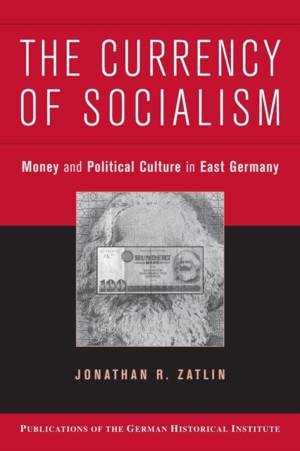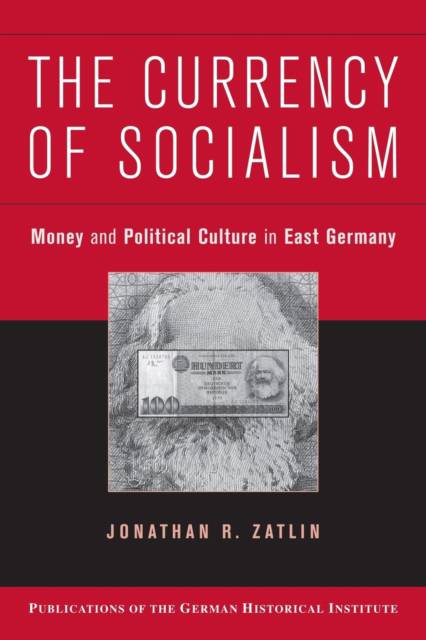
Door een staking bij bpost kan je online bestelling op dit moment iets langer onderweg zijn dan voorzien. Dringend iets nodig? Onze winkels ontvangen jou met open armen!
- Afhalen na 1 uur in een winkel met voorraad
- Gratis thuislevering in België vanaf € 30
- Ruim aanbod met 7 miljoen producten
Door een staking bij bpost kan je online bestelling op dit moment iets langer onderweg zijn dan voorzien. Dringend iets nodig? Onze winkels ontvangen jou met open armen!
- Afhalen na 1 uur in een winkel met voorraad
- Gratis thuislevering in België vanaf € 30
- Ruim aanbod met 7 miljoen producten
Zoeken
€ 67,95
+ 135 punten
Uitvoering
Omschrijving
There is perhaps nothing so commonplace and yet so mystifying as money. But to European communists, money was clearly an instrument of economic exploitation and spiritual alienation. In this groundbreaking study, Jonathan R. Zatlin explores the East German attempt to create a perfect society by eliminating money and explains the reasons for its failure. Drawing on a wide range of sources, including unpublished communist reports, secret police files, literature, jokes, letters written by ordinary people, and conversations with key German politicians, this book shows how the communist regime undermined the political authority of socialism and created the material conditions for its demise. By exploring both the economic and the cultural function of money, Zatlin challenges traditional approaches to economic planning by offering a novel explanation for the collapse of communism in East Germany and a highly original interpretation of German unification. Written in an engaging and lucid style, The Currency of Socialism brings to life the scurrilous competition for power among communist officials and the everyday burdens experienced by ordinary East Germans.
Specificaties
Betrokkenen
- Auteur(s):
- Uitgeverij:
Inhoud
- Aantal bladzijden:
- 398
- Taal:
- Engels
- Reeks:
Eigenschappen
- Productcode (EAN):
- 9780521743600
- Verschijningsdatum:
- 6/10/2008
- Uitvoering:
- Paperback
- Formaat:
- Trade paperback (VS)
- Afmetingen:
- 155 mm x 231 mm
- Gewicht:
- 557 g

Alleen bij Standaard Boekhandel
+ 135 punten op je klantenkaart van Standaard Boekhandel
Beoordelingen
We publiceren alleen reviews die voldoen aan de voorwaarden voor reviews. Bekijk onze voorwaarden voor reviews.











